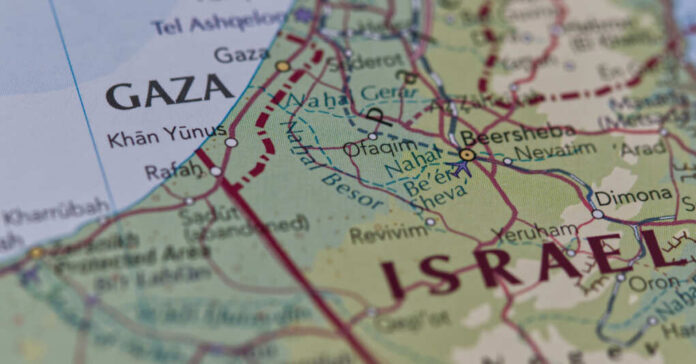
When we talk about fictional worlds, several come to mind. There’s Narnia, Hogwarts, Galt’s Gulch, and Middle Earth, just to name a few. Conservative activist and talk show host Dana Loesch would like to add another: Palestine.
She mentioned it recently as a comment to an X post by Historic Vids, an account that publishes “daily history lessons” on everything historically related you can imagine, from ancient India and the Sistine Chapel to extraordinary athlete performances of the 1970s.
Of course, the site has a stain of fanciful, as well.
As the account asked recently, “If you could visit any fictional world, where would you go?”
In true Loesch fashion, she replied, “Palestine.”
Palestine https://t.co/zdaBpEQmAw
— Dana Loesch (@DLoesch) November 13, 2023
To be sure, it’s a fantastic answer. And one that got a lot of support, as well as flack on the social media platform.
That’s was slick, Dana.
Damn it was good.— David Chase 🐊 DeSantis2024 (@SirDavidChase) November 13, 2023
Hahahaha 🤣😂🤣😂, quite Brilliant Dana. I believe it’s situated between Never Never Land and Narnia 🤣😂🤣😂
— P J Rabin (@pee_jay2701) November 13, 2023
However, it couldn’t be truer.
Palestinians and supporters of Palestinians have touted the existence of their “country” for decades. But they seem to not know the definition of a country that requires borders, laws, and a government. Palestine has none of those things.
Sure, it has a flag. And the “State of Palestine” is even recognized by the United Nations – but as an “observer” – you know, the same designation given to the Vatican.
But despite countless misinformed individuals, no actual place called Palestine exists.
In reality, there is only Israel. The Jewish state became an official nation (with a flag, borders, laws, a military, and a government) about 75 years ago in 1948. The people of Israel had been fighting for a place to call home and a nation all their own for decades, millennia really – ever since God told Jacob about the Promised Land and that it would be his people’s home.
Of course, that history has been strewn with war after war, all seemingly fighting to keep the Jews out of that Promised Land, what is today known as Israel.
In 1948, they finally succeeded, declaring themselves a statehood and fighting off Arab armies who were enraged by the idea of a Jewish nation.
Since then, the Israelis have rebuilt their land, adding education systems, a successful economy, and making their dreams not only a reality but a true democracy and a place to call home.
At the same time, in 1948, Arab leaders convinced those known as Palestinians to leave their homes and invade Israel. With war lost and Israel clearly not ruled by Arabs, these people have been adrift since the war. Their former Arab nations won’t accept them, choosing to use them as leverage to gain access to Israel and hopefully destroy it from the inside out.
Israel has only been too gracious to allow them within and around their borders, with most residing in the West Bank or the Gaza Strip. It is only because of this graciousness and a UN agency that supports welfare for “Palestine” that the population has survived.
You see, it’s not a place but a people.
Of course, rather than being thankful to Israel or simply trying to find a new place to call home, they and their Arab supporters are determined to take their “ancestral” lands back, meaning Israel and the Jewish “occupation” must be destroyed. Enter Hamas (centered in Gaza) and Hezbollah (located in the West Bank).
Note that the word “occupation,” as is so often used by Palestinians to refer to Israeli rule, in and of itself is a denial of reality as if Israel isn’t a real nation and is simply “occupying” Palestinian lands for the time being.
But Israel and its democracy are most definitely real. And as Loesch noted with her comment, Palestine is not. And it won’t be until the people forget this grudge they hold on to and move on, literally.












